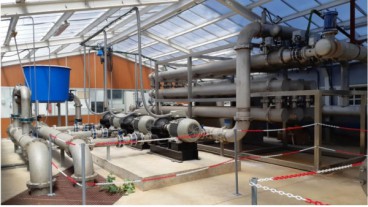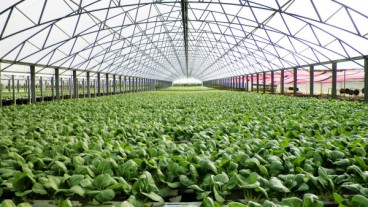UK risks missing out on major geothermal energy opportunity

The United Kingdom faces a significant risk of falling behind in the deployment of geothermal energy despite its substantial potential, according to a recent industry analysis by Energy & Infrastructure Business Info (EIBI).
The report highlights that while geothermal systems offer low-carbon, domestic, and dispatchable energy, capabilities particularly relevant to decarbonizing heat and strengthening energy security, the sector remains underdeveloped in the UK.
Analysts point to a range of structural barriers, including uncertain regulation, high upfront drilling and development costs, and a scarcity of project pipelines and investor appetite.
Deep geothermal energy, defined as heat extraction from depths greater than 500m, is especially constrained. Although the British Geological Survey and industry studies estimate that the UK’s sedimentary basins and granitic resource zones could support both direct-use heating and small-scale power generation, actual deployment remains limited. For example, geothermal heat supplied only approximately 0.3% of UK heat demand in 2021.
The EIBI report emphasizes that wrap-around policy support, such as exploration financing, risk-sharing mechanisms, regulatory clarity, and tailored incentives, is essential to unlock this resource. Without accelerated action, the UK may miss an opportunity to deliver large-scale, low-carbon heat and firm renewable power while creating jobs and regional investment.
From a civil and infrastructure engineering perspective, the implications are substantial. Scaling geothermal requires significant well-drilling campaigns, subsurface hydro-geological characterization, heat-exchanger and reinjection system design, integration with district-heating networks, and power-plant or heat-plant equipment installation. The long asset lives and baseload nature of geothermal systems align well with utility infrastructure models, yet the front-loaded capital demands and subsurface exploration risk present a financing and engineering challenge.
With the UK pursuing net-zero heat and energy targets, geothermal energy offers a strategic complement to wind and solar. However, the report concludes that without comprehensive policy reform and efforts to derisk early projects, the UK’s geothermal industry may remain a low-volume niche rather than a core component of the clean-energy transition.
Source: EIBI
Want to read more like this story?

Mars may host deep geothermal energy reservoirs beneath its crust
Oct, 31, 2025 | NewsResearchers have identified evidence suggesting that Mars may possess substantial thermal-energy re...

South America map reveals 6,000 GW of untapped geothermal power
Oct, 17, 2025 | NewsProject InnerSpace today announced the launch of GeoMap™ South America, a geothermal exploration p...

Heat produced by an underground line to warm houses in London
Sep, 05, 2019 | NewsA brand-new innovative plan suggests utilizing heat produced by an underground line to warm houses d...

California bill expands clean energy certification to geothermal
Oct, 16, 2025 | NewsThe State of California has passed legislation to incorporate geothermal energy facilities into its...

UK plans to use old coal mines to heat houses
Jul, 07, 2021 | NewsExperts in the UK consider an innovative idea that involves heating houses via abandoned coal mines....

China and Iceland deepen cooperation in geothermal energy
Oct, 15, 2025 | NewsChina and Iceland have issued a joint statement committing to enhanced cooperation on geothermal en...

Project InnerSpace launches geomap europe geothermal mapping platform
Nov, 21, 2025 | NewsOn November 19, 2025, in Boston, Project InnerSpace announced the launch of GeoMap Europe, a contin...

Polis Administration Awards $7.3 Million for Innovative Geothermal Heating and Cooling
Oct, 18, 2025 | NewsThe Colorado Energy Office (CEO) announced $7.3 million in awards through the third cycle of the Co...

New Zealand and Iceland sign geothermal cooperation agreement at COP 30
Nov, 20, 2025 | NewsNew Zealand and Iceland signed a Memorandum of Arrangement on 20 November 2025 to deepen cooperatio...
Trending

Taipei 101’s impressive tuned mass damper

Characteristics of Load Bearing Masonry Construction

The Billion-Dollar Airport Boom: 2025 Megaprojects Shaping the Skies

China Completes World’s Longest Expressway Tunnel, Redefining Connectivity

Dutch greenhouses have revolutionized modern farming



